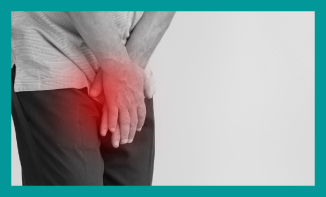Treatment for Prostatitis London
 Treatment for Prostatitis London – At our Guardian featured clinic, we address the underlying issues in treatment for Prostatitis and not just the symptoms.
Treatment for Prostatitis London – At our Guardian featured clinic, we address the underlying issues in treatment for Prostatitis and not just the symptoms.
Treatment for Prostatitis London:
What is Prostatitis?
Prostatitis is swelling and inflammation of the prostate gland, which is a walnut-sized gland located below the bladder in men. The prostate produces semen to transport sperm, when ejaculation occurs.
Prostatitis can cause painful or difficult urination and other symptoms can include groin pain, pelvic area or genital discomfort. Occasionally there can be flu-type symptoms.
It affects men of all ages and is more common in men aged 50 and over. The cause can be multi-faceted and is usually poorly understood by orthodox medicine. If prostatitis is caused by a bacterial infection, it is usually treated with antibiotics.
Depending on the underlying issues, prostatitis can come on gradually or suddenly. It can last for months or keep recurring (chronic prostatitis).
Symptoms may include:
• Pain or burning sensation when urinating
• Difficulty urinating, such as dribbling or hesitant urination
• Frequent urination especially at night
• Urgent need to urinate
• Cloudy urine
• Blood in the urine
• Discomfort in the abdomen, groin or lower back
• Pain in the area between the scrotum and rectum
• Pain or discomfort in the genital area
• Painful ejaculation
• Flu-like signs and symptoms if it’s bacterial prostatitis
Causes
All the causes of prostatitis are often poorly understood by mainstream medicine.
Acute bacterial prostatitis is often caused by common strains of bacteria. The infection can start when bacteria in urine leak into the prostate. Antibiotics are used to treat the infection. If they don’t eliminate the bacteria, prostatitis might recur or be difficult to treat (chronic bacterial prostatitis).
Nerve damage in the lower urinary tract, which can be caused by surgery or trauma to the area, might contribute to prostatitis not caused by a bacterial infection.
In many cases of prostatitis, the cause isn’t identified.
Diagnosis
Diagnosing prostatitis involves ruling out other conditions as the cause of the symptoms and determining what kind of prostatitis it is. A doctor’s initial diagnostic tests might include:
• Urine tests. To check if infection is present
• Blood tests. For signs of infection and other prostate issues
• Imaging tests. In some cases, the doctor might order a CT scan of the urinary tract and prostate or an ultrasound of the prostate.
Based on the symptoms and test results, the doctor might conclude that it is one of the following types of prostatitis:
• Acute bacterial prostatitis. Often caused by common strains of bacteria, this type of prostatitis generally starts suddenly and causes flu-like signs and symptoms, such as fever, chills, nausea and vomiting
• Chronic bacterial prostatitis. When antibiotics don’t eliminate the bacteria causing prostatitis, you can develop recurring or difficult-to-treat infections. Between bouts of chronic bacterial prostatitis, you might have no symptoms or only minor ones
• Chronic prostatitis/chronic pelvic pain syndrome. This type of prostatitis — the most common — isn’t caused by bacteria.
Often an exact cause can’t be identified by mainstream medicine.
Mainstream Medicine Treatment
Prostatitis treatments depend on the underlying cause. They can include:
• Antibiotics. Taking antibiotics is the most commonly prescribed treatment for prostatitis
• Anti-inflammatory agents. Non-steroidal anti-inflammatory drugs (NSAIDs) to ease the discomfort
Non Pharmacetical Treatment for Prostatitis London Clinic
A full case history is taken and functional medicine tests – carefully chosen for each patient – are recommended. A treatment plan is formulated based on these test results, which addresses the underlying issues driving this painful condition and the symptoms with a view to long-term resolution. Each prescription is tailored to meet each patient’s unique needs. Patients report that this approach works far better than a one size fits all approach. This condition is usually very stressful for the man and we aim to lower his stress levels using non pharmaceutical medicine.
References
Acute bacterial prostatitis after transrectal prostate needle biopsy: clinical analysis.
If you would like to book an appointment for treatment for Prostatitis London clinic
Contact Deborah’s Medical Secretary for an appointment